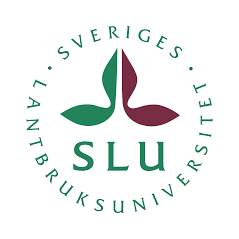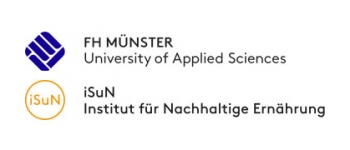WP1 Best practices for food waste prevention
The project includes case studies in the serving sector in the participating countries.
Investigation of causes
There are plenty of reasons why food waste occurs. Often there is traceability to different levels of the catering service. Important levels are the production stage (kitchen), the service stage (serving of food), the management stage and lastly the customer stage. Beginning with unavoidable food waste like bones or peels of fruits, which occur in the kitchen, it leads on to avoidable service waste which is the point where most of the measurements focus on. When the management of a catering service doesn’t implement a customized order, there is a risk that food waste occurs (Derqui et al., 2018). Studies could detect other several reasons for an increasing amount of food waste. For example the motivation and knowledge of the staff regarding food waste minimization occurs to be one important factor when talking about reasons for food waste (Silvennoinen et al., 2005; Derqui et al., 2018). On the customer level a cause for food waste can be found for example in the plate waste. Eriksson (2017) could detect that the catering in elderly care homes produce far more food waste than the ones in schools and preschools. On the production stage inadequate kitchen or production processes lead to more waste (Waskow, Blumenthal, 2016). Additionally not customized meal plans or the lack of attention to dietary habits of the customers have an impact on the level of food waste as well (Falasconi, 2015). On the service stage, one reason for food waste is the distribution of portions that are too large and therefore not according to reference values for portion sizes (Balzaretti et al., 2018). The case studies in the work package 1 of the project AVARE try to detect reasons for the occurrence of food waste in practice, by performing food waste measurements and conducting an online survey. Besides this stakeholder workshops aim to find solutions for minimizing the causes leading to food waste. Overall aim is to find recommendations for different setting and situations since the different measurements are already known.
Balzaretti, C. M.; Ventura, V.; Ratti, S.; Ferrazzi, G.; Spallina, A.; Carruba, M. O.; Castrica, M. (2018): Improving the overall sustainability of the school meal chain: the role of portion sizes. Eating and Weight Disorders - Studies on Anorexia, Bulimia and Obesity, p. 1-10.
Derqui, Belén; Fernandez, Vicenç; Fayos, Teresa (2018): Towards more sustainable food systems. Addressing food waste at school canteens. Appetite, 129, p. 1-11.
Eriksson, Mattias; Persson Osowski, Christine; Malefors, Christopher; Björkman, Jesper; Eriksson, Emelie (2017): Quantification of food waste in public catering services – A case study from a Swedish municipality. Waste Management, 61, p. 415-422.
Falasconi, Luca; Vittuari, Matteo; Politano, Alessandro; Segrè, Andrea (2015): Food Waste in School Catering: An Italian Case Study. Sustainability, 7(11).
Silvennoinen, Kirsi; Heikkilä, Lotta; Katajajuuri, Juha-Matti; Reinikainen, Anu (2015): Food waste volume and origin: Case studies in the Finnish food service sector. Waste management, 46, p. 140-145.
Waskow, Frank; Blumenthal, Antonia (2016): Working Paper 1: Erhebung, Relevanz und Ursachen von Lebensmittelabfällen in der Mittagsverpflegung von Ganztagsschulen. ReFoWas - Reduce Food Waste.
2021 | Christina Strotmann | Generation and prevention of food waste in the German food service sector in the COVID-19 pandemic – Digital approaches to encounter the pandemic related crisis
Strotmann, Christina; Baur, Vanessa; Börnert, Nora; Gerwin, Paula
2021 | Christopher Malefors | Food waste in the food service sector
15 January 2021: Ways out of the covid-19 crisis - Results online survey
The Institute of sustainable Nutrition (iSuN) conducted an online survey with catering companies from Germany in October 2020. Results are shown in the factsheet below.
11 January 2021: Invitiation for international workshop series
What is this workshop series about?
18 December 2020: CutFoodWaste2020
NORSUS, the norwegian research partner of the AVARE projekt was able to successfully complete a research project on food waste in the food and catering industry.
2020 | Daniele Matzembacher | Consumer’s food waste in different restaurants configuration: A comparison between different levels of incentive and interaction
Matzembacher, Daniele Eckert; Brancoli, Pedro; Moltene, Laís Maia; Eriksson, Mattias (2020)
09 October 2019: AVARE meeting in Berlin
On the 9th and 10th of October the project partners of AVARE met in Berlin for the second project meeting.
07 October 2019: Survey on food waste by the Institute for sustainable Nutrition
The German research partner Institute for sustainable Nutrition started a survey which examines efficient measurements for reducing
2018 | Mattias Eriksson | Identification and modelling of risk factors for food waste generation in school and pre-school catering units
Stehen, Hjördis; Malefors, Christopher; Röös, Elin, Eriksson, Mattias (2018)
2017 | Mattias Eriksson | From quantification to reduction - identification of food waste reduction strategies in public food services
Malefors, Christopher; Eriksson, Mattias; Persson Osowski, Christine (2017)
2017 | Christina Strotmann | Comparing Food Provided and Wasted before and after Implementing Measures against Food Waste in Three Healthcare Food Service Facilities
Strotmann, Christina; Friedrich, Silke; Kreyenschmidt, Judith; Teitscheid, Petra; Ritter, Guido (2017)
2017 | Christina Strotmann | A Participatory Approach to Minimizing Food Waste in the Food Industry – A Manual for Managers
Strotmann, Christina; Göbel, Christine; Friedrich, Silke; Kreyenschmidt, Judith; Ritter, Guido; Teitscheid, Petra (2017)
Contact
Fachhochschule Münster
Institut für Nachhaltige Ernährung (iSuN)
Corrensstraße 25
48149 Münster
Tel. +49 251 83-65570
isun()fh-muenster()de
ERA-Net SUSFOOD2
The project AVARE "Adding value in resource effective food systems" is a transnational project of the ERA-Net SUSFOOD2, funded by national funding agencies – Ministry of Agriculture and Forestry, Finland, Federal Ministry of Food and Agriculture, Germany, The Research Council of Norway and Formas, The Swedish Research Council – and co-funded by the European Union´s Horizon 2020 research and innovation programme.





